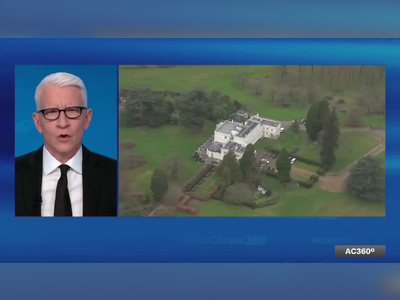
EU Postpones Electric Car Tariffs on UK Until 2027
The European Commission has proposed a three-year postponement of tariffs on electric vehicles (EVs) traded between the UK and the EU, responding to concerns from carmakers unprepared for the planned post-Brexit trade rule changes.
These rules, originally intended to bolster EU car manufacturing by introducing a 10% tariff, risked inflating costs significantly.
Approval from EU member states is required at an upcoming meeting, with the Commission initially resisting delays despite industry and UK government appeals.
However, it has now recognized the need for a "one-off extension" due to the car industry's continued recovery from the pandemic, the disruption from the Ukraine conflict, and competitive pressures from US subsidies.
The anticipated "rules of origin" would have required cars to contain primarily locally sourced parts to avoid tariffs, a measure designed to protect against inexpensive imports, notably from China. Yet carmakers have struggled with battery production quotas, presently depending on imports due to unexpectedly slow progress in local battery production.
The lack of readiness could impose £3.75 billion in costs on European manufacturers over three years and potentially drive up EV prices. The UK, a major market for EU cars with 1.2 million vehicles exported to the UK last year, and a crucial supplier to the EU, had lobbied for the deferral.
The Commission's proposal, while expected, brings relief to the industry facing imminent tariffs in January. Simultaneously, it has pledged not to extend the delay past the new 2027 deadline and to invest €3 billion to enhance European battery production.
Despite this reprieve, the spotlight is on the UK's EV production capacity, with announcements of new "gigafactories" like Jaguar Land Rover's in Somerset. However, production has not yet begun, and the future of another potential battery plant in Blyth, Northumberland, is under question.
Approval from EU member states is required at an upcoming meeting, with the Commission initially resisting delays despite industry and UK government appeals.
However, it has now recognized the need for a "one-off extension" due to the car industry's continued recovery from the pandemic, the disruption from the Ukraine conflict, and competitive pressures from US subsidies.
The anticipated "rules of origin" would have required cars to contain primarily locally sourced parts to avoid tariffs, a measure designed to protect against inexpensive imports, notably from China. Yet carmakers have struggled with battery production quotas, presently depending on imports due to unexpectedly slow progress in local battery production.
The lack of readiness could impose £3.75 billion in costs on European manufacturers over three years and potentially drive up EV prices. The UK, a major market for EU cars with 1.2 million vehicles exported to the UK last year, and a crucial supplier to the EU, had lobbied for the deferral.
The Commission's proposal, while expected, brings relief to the industry facing imminent tariffs in January. Simultaneously, it has pledged not to extend the delay past the new 2027 deadline and to invest €3 billion to enhance European battery production.
Despite this reprieve, the spotlight is on the UK's EV production capacity, with announcements of new "gigafactories" like Jaguar Land Rover's in Somerset. However, production has not yet begun, and the future of another potential battery plant in Blyth, Northumberland, is under question.











